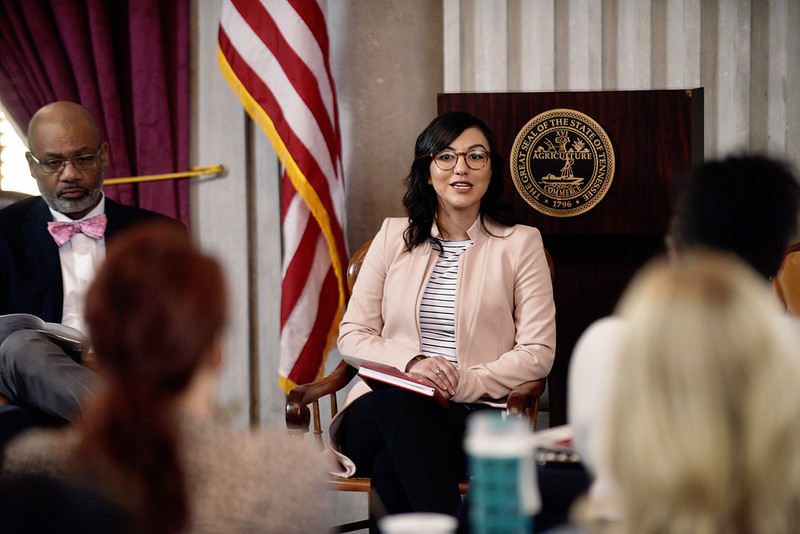
It was during an education policy class at Vanderbilt’s Peabody School of Education during my first year in a graduate program that I first saw my lived experience reflected in education data: the percentage of first-generation immigrants who attend college; the percentage who complete; and the percentage of Latinos with degrees ranging from a bachelor’s to a PhD. All the numbers were disappointingly low, especially when we consider the large percentage of Latinos across the country who are not reflected in access to higher education.
My personal lived experience is the foundation of my work in education policy and advocacy, and it serves as an entry point to champion educational justice. I am a first-generation Mexican immigrant. I was undocumented until I was a teenager. I am lucky to have become a US citizen and to gain access to the “traditional” experience of teen students preparing for and attending college.
Through my graduate education and my work in nonprofit education, I have been driven by a belief that luck should not be the determining factor for a student’s chance at success and independence. Neither should a student’s background, zip code, or family history. Public policy in general and education policy in particular should work to advance equitable access to higher education.
However, anyone who works in education knows that as a collective we’re really good at recognizing and admiring problems. We know that a college education is more important now than ever. We also know that getting one continues to be decidedly unequal. The critical question for us is: What can we do to make a positive change in the problems we see?
The Complete Tennessee Leadership Institute is an action-based answer to this question. Participation in the CTLI program reinforces the urgency around ensuring all students have access to higher education and encourages all educators to see themselves as advocates. Most importantly, it provides education advocates with clear tools to employ in advancing education equity. Namely, these tools are:
Disaggregated data as the necessary foundation to understand how we are serving students, and, most importantly, how we can do better to serve different groups of students with diverse needs. We must have access to data showing us how students of color by race and ethnicity are doing, be willing to have difficult conversations about how our system might not be serving them well, and then use the data to inform changes in policy, practice, and funding.
Research-driven practices as drivers for change should be implemented efficiently and urgently, but with care to recognize that different groups of students need different approaches.
We must be agile and recognize that an adult learner will need a different array of support services than traditional-age students, especially if they are working parents.
Connection to expert leaders across higher education policy, workforce development, nonprofits, and public service is a powerful way to disrupt the siloed work of education and promote community action through a collective impact model. We must recognize that public policy over decades has eroded almost all access to high-quality degree-granting college education in our prisons and that members from all these fields must come together to advocate for reinstating and expanding postsecondary opportunities inside prisons.
As an alumna of the CTLI 2017 cohort, I have seen how CTLI drives a sense of urgency around the state of higher education in Tennessee and our ability to play a role in creating positive change. We are all challenged to use the tools at our disposal to advance equity in education. I continue to rely on these tools — and the network of expert leaders across the state I am now connected to — to advance conversations of equity in access. I do this because I believe that if we are striving to expand access to education, we must be sure to include all who call Tennessee home in this vision of our future.
Karla Coleman Garcia is director of policy and strategic partnerships at the Tennessee Higher Education Initiative. She recently participated as a speaker at the first convening of the 2019-20 CTLI cohort.
